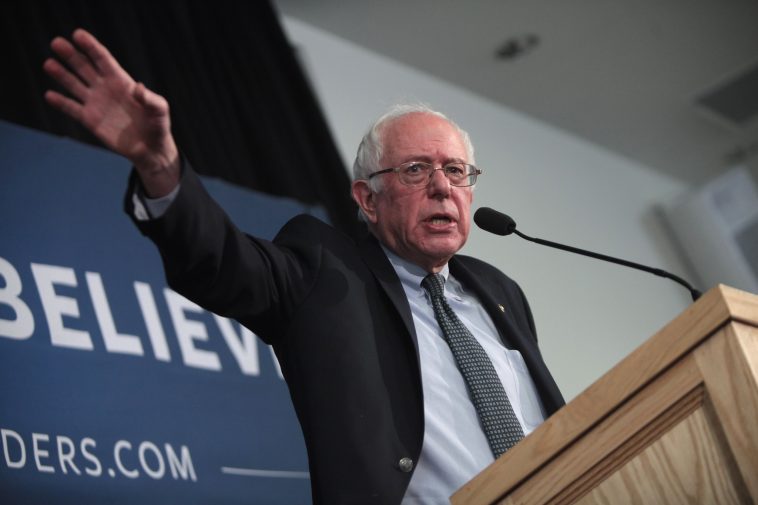Attention in the Democratic race has now shifted to New Hampshire, with voters in the Granite State going to the polls next Tuesday. Sanders will look to capitalise on momentum coming out of Iowa to get a big win in a state he won by over 20 points against Hillary Clinton in 2016.
The good news for the Vermont Senator is that he has a steady and growing lead based on the trend in the polls; on average over the last three weeks he’s averaging 26 percent, with Joe Biden averaging 18 percent (though his numbers have been dropping, and his poor showing in Iowa won’t help).
Pete Buttigieg and Elizabeth Warren both sit around 14 percent. Amy Klobuchar is the best of the remaining candidates, currently averaging 7 percent.
Delegate allocation is split between the results of the statewide vote (8 delegates), and the result in each of the state’s two congressional districts (8 each). In practical terms, that means any candidate not receiving 15 percent of the statewide vote whilst also failing to do so in either congressional district will receive no delegates.
In a best case scenario for Sanders, which is unlikely but not impossible given the polling, he could win every single one of the 24 available pledged delegates.
The margins for that to happen are very thin, and literally a few percentage points for the other candidates could be the difference between Sanders picking up a large majority if not all of the delegates and a much smaller win. Here are some things to look out for:
- Sanders’ best performance in 2016 was in Cheshire County, centred on Keen in the south west corner of the state, with over 70 percent, so he’ll be looking to hold up well here
- Like Iowa, New Hampshire is overwhelmingly white (around 92 percent), however a strong showing with black and Hispanic voters could again give him a small boost
- Sanders polls particularly well with independents, so is set to benefit from New Hampshire’s semi-open primary system, whereby both Democrats and independents, who account for 41 percent of the state’s electorate, can vote in the Democratic primary
Final analysis
All the signs are looking positive for Sanders – a divided field with him the only clear favourite in the state’s polls, his pre-existing 2016 infrastructure and record in the state, and the popularity of his brand of freethinking politics in a state that likes making up its own mind.
Based on all these factors, we predict a win of at least 5 points for Sanders in the New Hampshire primary next Tuesday, translating to a sizable majority if not all, of the state’s 24 pledged delegates.



